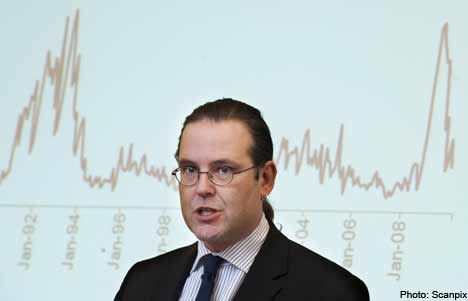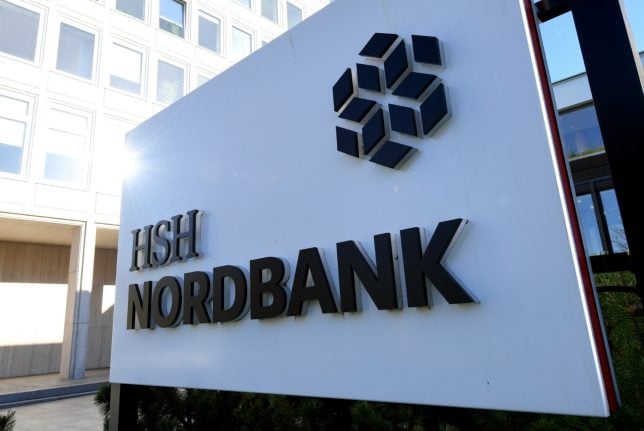In presenting the government’s new prognosis on Friday, Finance Minister, Anders Borg said that the new estimate for the budget position next year is a deficit of 89 billion kronor ($13 billion), compared with a deficit of 107 billion in earlier budget estimates.
In 2011, the State finances will be in better shape to the tune of 10 billion kronor, compared with earlier estimates, with a deficit of 57 billion kronor. In 2012 the deficit is expected to be 18 billion kronor.
Consequently, Borg says that the government will make savings in reduced spending on workplace measures, while estimated income tax revenue will be higher than the government’s earlier estimates.
According to Borg, a very expansive economic policy for Sweden is appropriate. “It will remain expansive throughout 2010,” Borg said at a press conference. To a certain degree, the expansive economic policy ought to continue throughout 2011, while after that the policy settings will soften, according to Borg.
Borg stated that other European countries would need to handle their economies properly when the worst of the crisis is passed, with increased taxes and fiscal tightening, but Sweden will be able to avoid such pain, he says. “We are not in that situation,” Borg said.
Borg is already preparing for the next downturn, and he therefore believes that the State’s finances must be in surplus as quickly as possible when the current crisis dissipates. “We must be in proper shape before the next downturn,” he said. Borg estimates a surplus in the State’s finances by 2013 and 2014, of 0.4 percent and 1.1 percent, respectively.
With this upwardly revised estimate of the State’s finances, the national debt will peak next year, when it will be 38.4 percent of GDP, compared with 37.2 percent this year. In 2011 national debt will plateau, and will then fall to 37.6 percent in 2012, according to Borg’s prognosis.



 Please whitelist us to continue reading.
Please whitelist us to continue reading.
Member comments